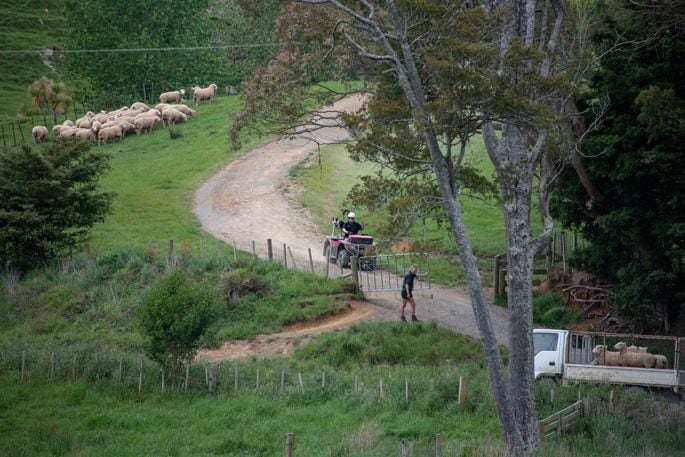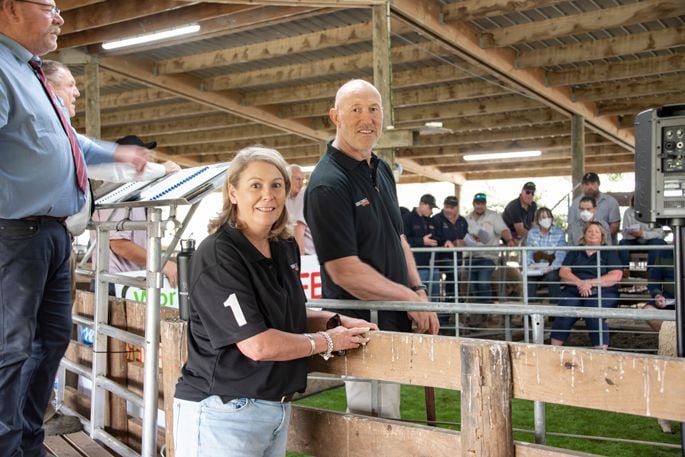Alastair and Ann Reeves are the fourth generation of Alastair’s family to farm the 90-year-old Te Akau property.
Building on that family legacy is their goal and they have developed a highly resilient farming business that enhances the surrounding environment.
The couple is also the Waikato Regional Supreme Winners at the 2024 Ballance Farm Environment Awards.
“We were very proud and emotional to receive the Waikato Regional Supreme Winners award along with four other awards,” Alastair said.
Ann said entering the awards “not only helps us to tell our farm story, but also gives us the opportunity to look back and see how far we have come”.
Building a legacy
Alastair always worked on the farm during school and university holidays for his parents John and Helen Reeves. He graduated from Lincoln University with a BCom Ag degree and spent time overseas playing rugby.
“I came home in 1996 to lease and run three-quarters of the family farm. The 1980s were incredibly hard for farmers and my parents had worked through that. They were ready to hand over the baton, it was the right time for our family.”
His parents continued to run the Waimai Romney Stud, which was established in 1953.
When Alastair and Ann married in 2000, they bought 129 hectares of land from a neighbouring farm, followed by further leases totalling another 457ha.
Their business, spread over all the properties, concentrated on buying yearling Friesian bulls and selling at two years, and a commercial breeding Romney ewe flock. In 2008, their hard work and equity building finally allowed them to buy the home farm from the family.
“We then progressively bought into the Waimai Romney Stud,” Alastair said.
Waimai Romney Stud
Waimai Romney Stud is the result of Alastair’s parents pioneering genetic efforts and their annual ram auction attracts a large gathering.
“The Romneys are bred for facial eczema tolerance, worm tolerance and low methane emission per kilogramme of sheep.”
The goal is to breed low input, high production sheep and “produce top quality meat while still believing in wool and working behind the scenes to promote and improve the wool industry”.
In 2016, the Reeves started breeding their own sheep, called Waimai CharaBlack.
“They are a Hampshire/Charolais cross resulting in high growth animals with fantastic eating quality due to their high intramuscular fat content (IMF). They are like the Wagyu of the lamb world.”

It’s all go on ram auction day. Photo: Catherine Fry
At present, the CharaBlack meat goes off for processing with the rest of the farm’s meat until the right market can be found.
“We’re part of a South Island Genomics Calibration Trial and a PML trial in the North Island which is looking at the CharaBlack eating quality and marbling. The meat is doing well in trials, and we now have a stabilised, in-house bred flock of 200.”
Stock and land management
Alongside breeding sheep for an environmentally positive outcome, the Reeves also have a good understanding of what’s best in terms of stock classes for the different areas of their land and the overall management of soil and sediment.
About 10% of the poorest pasture on their current 600ha has been retired. Native bush is planted only where it will thrive. Poplars are planted annually to control erosion and forestry has its place on the farm.
“We’ve tried different methods of planting and retiring land and have significantly reduced the cost of planting and learned what to plant where on our farm.”
Part of the community
The longevity of the Reeves family’s presence in their community means they have strong community focus, including involvement with the school, their catchment initiative and tree planting on the farm.
“We support industry collaboration, such as the development of the NZ Farm Assurance Programme Plus (Fap Plus) digital tool and we became Fap Plus accredited in 2024.”
Alastair and Ann are keen supporters of the Growing Future Farmers programme. As farm trainers, they take a student on the two-year programme to provide them with practical skills, training, life skills, and experience in agriculture. Their own farm manager, Tom Lilley, went through a similar cadetship route into his farming career and recently finished training GFF student Jess Cameron.
“Sheep and beef farms are historically intergenerational, it’s in our DNA to look after the land for the next generation,” Alastair said.
The Reeves have three children who have all pursued agriculturally related degrees at Lincoln University. The eldest, Sophie, 22, now works in supply chain logistics. George, 21, is still studying and is part of the Crusaders Rugby Academy. The youngest, Angus (19) is still studying.
Looking at their study choices so far, it indicates that one or more of the fifth generation of Reeves may well be next at the helm of the family business.



0 comments
Leave a Comment
You must be logged in to make a comment.